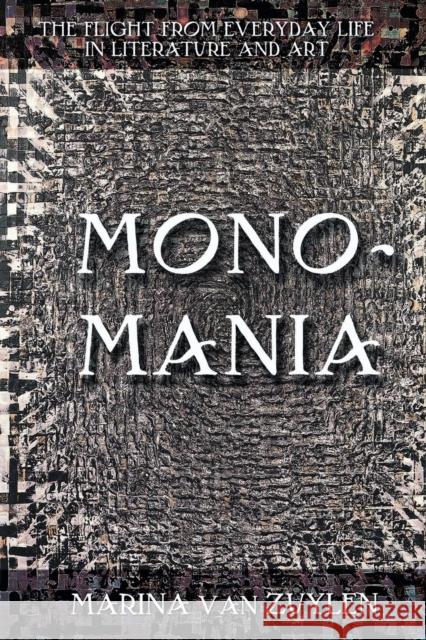Monomania: The Flight from Everyday Life in Literature and Art » książka
Monomania: The Flight from Everyday Life in Literature and Art
ISBN-13: 9780801489860 / Angielski / Miękka / 2005 / 252 str.
"This book is about the obsessive strategies people use to keep the arbitrary out of their lives; it is about the fanaticism and intolerance linked to their ideas of perfection and permanence. . . . Those readers who have brushed against the dangers of the idee fixe, who have come close to surrendering to something or someone diabolically seductive or coercive, will recognize in these characters their own encounter with a dangerously systematized world." From the introduction.Monomania explores the cultural prominence of the idee fixe in Western Europe during the nineteenth and twentieth centuries. Marina van Zuylen revives the term monomania to explore the therapeutic attributes of obsession. She introduces us to artists and collectors, voyeurs and scholars, hypochondriacs and melancholics, whose lives are run by debilitating compulsions that may become powerful weapons against the tyranny of everyday life.In van Zuylen's view, there is a productive tension between disabling fixations and their curative powers; she argues that the idee fixe has acted as a corrective for the multiple disorders of modernity. The authors she studies Charles Baudelaire, Sophie Calle, Elias Canetti, George Eliot, Gustave Flaubert, and Thomas Mann among them embody or set in motion different manifestations of this monomaniacal imperative. Their protagonists or alter egos live more intensely, more meaningfully, because of the compulsive pressures they set up for themselves. Monomania shows that transforming life into art, or at least into the artful, drives out the anxiety of the void and puts in its place something so orderly and meaningful that it can take on the aura of a religion."











